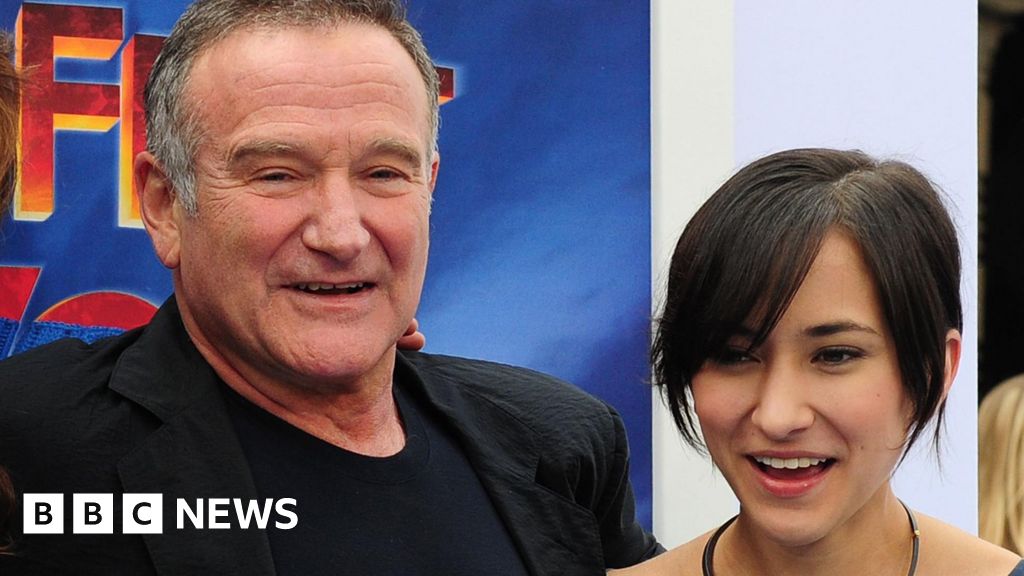Robin Williams' daughter pleads for people to stop sending AI videos of her dad

Robin Williams' Daughter Pleads for End to AI-Generated Videos
Zelda Williams, daughter of the late actor and comedian Robin Williams, has publicly requested an end to the creation and distribution of AI-generated videos featuring her father. In a recent Instagram story, she expressed her distress and discomfort at the proliferation of these AI recreations, highlighting the ethical concerns surrounding the digital resurrection of deceased performers.
"Stop Doing This To Him": Zelda Williams' Plea
"Please, just stop sending me AI videos of Dad," Williams wrote, addressing those creating and sharing the content. She emphasized her lack of interest in viewing these recreations, stating, "Stop believing I wanna see it or that I'll understand, I don't and I won't." Her message conveyed a deep sense of personal violation and a concern for her father's legacy. "If you've got any decency, just stop doing this to him and to me, to everyone even, full stop. It's dumb, it's a waste of time and energy, and believe me, it's NOT what he'd want."
This is not the first time Zelda Williams has spoken out against AI's use of her father's likeness. In 2023, she voiced her concerns while supporting a SAG-Aftra campaign against AI, describing attempts to recreate his voice as "personally disturbing" and underscoring the broader ethical implications for performers' rights and legacies.
The Rise of AI Recreations and Ethical Concerns
Zelda Williams' recent post reflects a growing trend on social media, where AI is used to animate images of deceased individuals, often accompanied by sentimental captions promising to "bring your loved ones back to life." This practice raises significant ethical questions about consent, exploitation, and the potential for misrepresentation.
"To watch the legacies of real people be condensed down to 'this vaguely looks and sounds like them so that's enough', just so other people can churn out horrible TikTok slop puppeteering them is maddening," Williams wrote. She criticized the practice as a disrespectful and reductive exploitation of artistic history and human lives.
Expert Perspective: The Blurring Lines of Digital Identity
Dr. Eleanor Sandry, a media ethics professor at the University of Sussex, notes the growing complexity of digital identity in the age of AI. "We are entering an era where the lines between reality and simulation are increasingly blurred," she explains. "The ability to recreate a person's likeness and voice raises profound questions about ownership, consent, and the right to control one's own image, even after death. The ethical considerations are particularly acute when dealing with public figures whose work and image are deeply intertwined with their personal identity."
The "AI Actor" Debate and Hollywood's Unease
Zelda Williams' plea comes amidst broader anxieties within the entertainment industry regarding the use of AI. The recent unveiling of "AI actor" Tilly Norwood, created by Dutch artist Eline Van der Velden, sparked widespread criticism and fuelled concerns about the future of human actors. SAG-Aftra has condemned Norwood as a computer-generated character lacking the "life experience" and "emotion" that audiences seek in performances.
Actress Emily Blunt expressed her strong disapproval, calling the concept "really, really scary" and urging agencies to refrain from employing AI actors. Van der Velden defended her creation as a "piece of art" intended to "spark conversation," but the debate surrounding AI's role in entertainment continues to intensify.
Historical Context: The Evolution of Image Rights
The current debate surrounding AI and celebrity likeness builds upon a long history of legal and ethical struggles over image rights. In the pre-digital age, issues centered on unauthorized use of photographs and recordings. The advent of digital technology and now AI has exponentially complicated these issues, making it harder to define and protect an individual's identity and legacy. Landmark cases involving the estates of figures like Elvis Presley and Marilyn Monroe have helped shape the legal landscape, but AI presents entirely new challenges that existing laws struggle to address effectively.
The Future of AI in Entertainment: A Call for Ethical Guidelines
As AI technology continues to advance, the entertainment industry faces the urgent need for clear ethical guidelines and legal frameworks to protect performers' rights and prevent the exploitation of their likenesses. Zelda Williams' vocal opposition to AI-generated recreations of her father serves as a powerful reminder of the human cost associated with these technologies and the importance of respecting individual legacies.
Originally sourced from: BBC Entertainment
